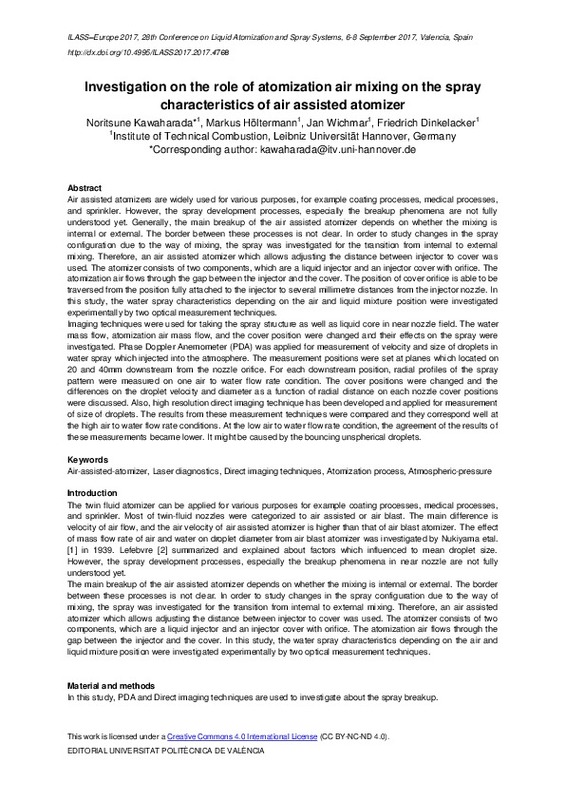JavaScript is disabled for your browser. Some features of this site may not work without it.
Buscar en RiuNet
Listar
Mi cuenta
Estadísticas
Ayuda RiuNet
Admin. UPV
Investigation on the role of atomization air mixing on the spray characteristics of air assisted atomizer
Mostrar el registro completo del ítem
Kawaharada, N.; Höltermann, M.; Wichmar, J.; Dinkelacker, F. (2017). Investigation on the role of atomization air mixing on the spray characteristics of air assisted atomizer. En Ilass Europe. 28th european conference on Liquid Atomization and Spray Systems. Editorial Universitat Politècnica de València. 175-182. https://doi.org/10.4995/ILASS2017.2017.4768
Por favor, use este identificador para citar o enlazar este ítem: http://hdl.handle.net/10251/99828
Ficheros en el ítem
Metadatos del ítem
| Título: | Investigation on the role of atomization air mixing on the spray characteristics of air assisted atomizer | |
| Autor: | Kawaharada, Noritsune Höltermann, Markus Wichmar, Jan Dinkelacker, Friedrich | |
| Fecha difusión: |
|
|
| Resumen: |
[EN] Air assisted atomizers are widely used for various purposes, for example coating processes, medical processes,
and sprinkler. However, the spray development processes, especially the breakup phenomena are not ...[+]
|
|
| Palabras clave: |
|
|
| Derechos de uso: | Reconocimiento - No comercial - Sin obra derivada (by-nc-nd) | |
| ISBN: |
|
|
| Fuente: |
|
|
| DOI: |
|
|
| Editorial: |
|
|
| Versión del editor: | http://ocs.editorial.upv.es/index.php/ILASS/ILASS2017/paper/view/4768 | |
| Título del congreso: |
|
|
| Lugar del congreso: |
|
|
| Fecha congreso: |
|
|
| Tipo: |
|








